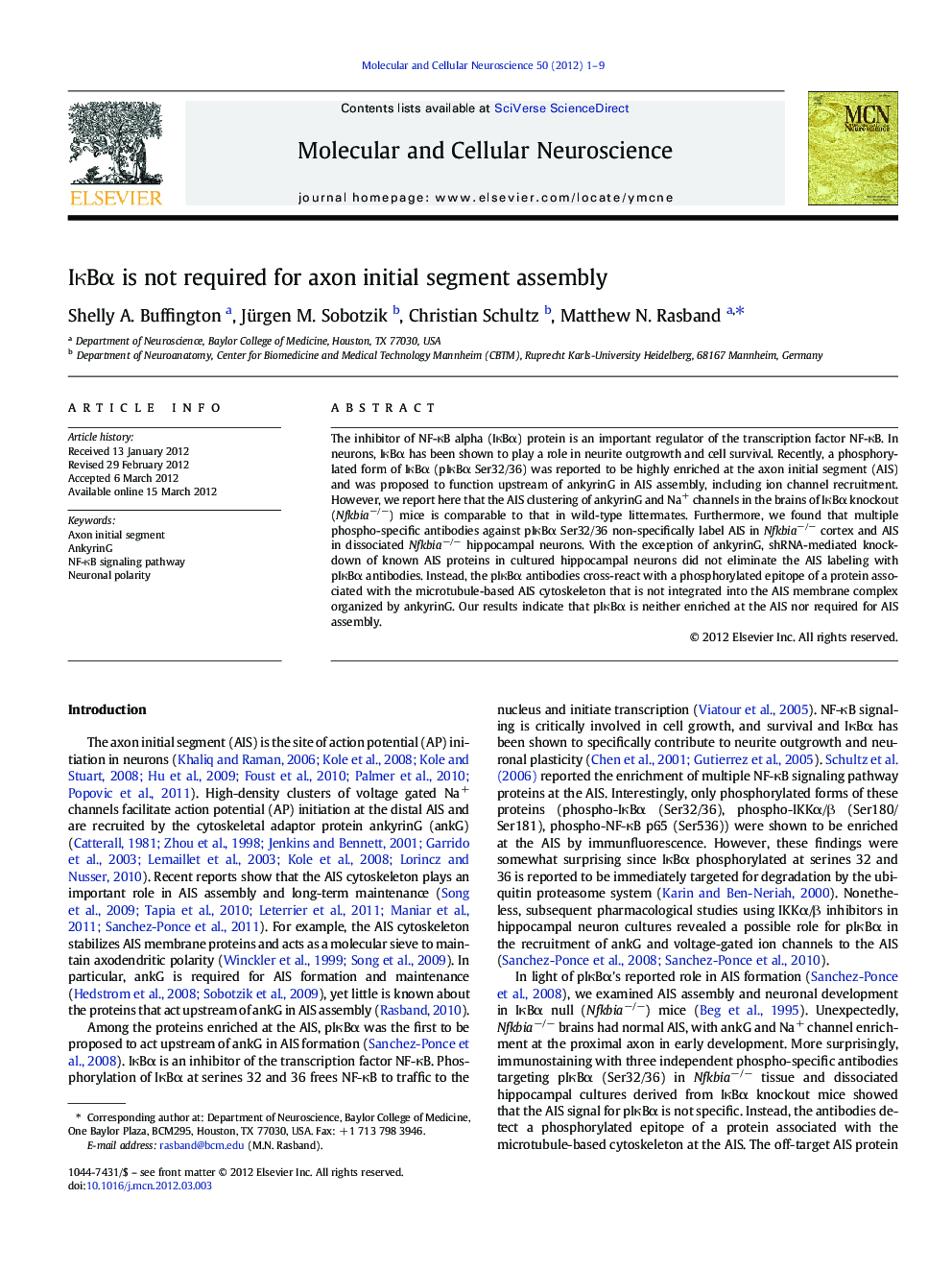| Article ID | Journal | Published Year | Pages | File Type |
|---|---|---|---|---|
| 2198596 | Molecular and Cellular Neuroscience | 2012 | 9 Pages |
The inhibitor of NF-κB alpha (IκBα) protein is an important regulator of the transcription factor NF-κB. In neurons, IκBα has been shown to play a role in neurite outgrowth and cell survival. Recently, a phosphorylated form of IκBα (pIκBα Ser32/36) was reported to be highly enriched at the axon initial segment (AIS) and was proposed to function upstream of ankyrinG in AIS assembly, including ion channel recruitment. However, we report here that the AIS clustering of ankyrinG and Na+ channels in the brains of IκBα knockout (Nfkbia−/−) mice is comparable to that in wild-type littermates. Furthermore, we found that multiple phospho-specific antibodies against pIκBα Ser32/36 non-specifically label AIS in Nfkbia−/− cortex and AIS in dissociated Nfkbia−/− hippocampal neurons. With the exception of ankyrinG, shRNA-mediated knockdown of known AIS proteins in cultured hippocampal neurons did not eliminate the AIS labeling with pIκBα antibodies. Instead, the pIκBα antibodies cross-react with a phosphorylated epitope of a protein associated with the microtubule-based AIS cytoskeleton that is not integrated into the AIS membrane complex organized by ankyrinG. Our results indicate that pIκBα is neither enriched at the AIS nor required for AIS assembly.
